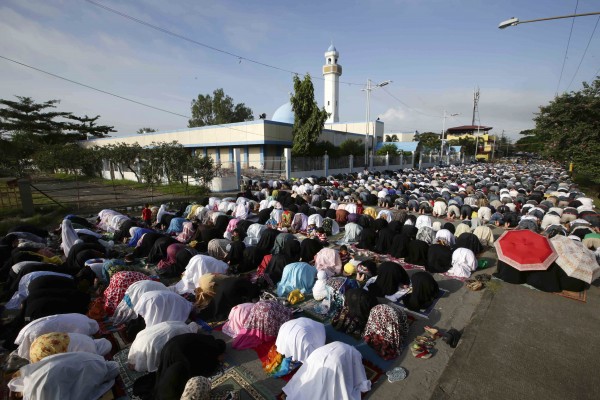
Filipino Muslims offer early morning prayers in observance of Eidl Adha (Feast of Sacrifice) at the Blue Mosque at suburban Taguig city, east of Manila, Tuesday, Oct. 15, 2013. AP PHOTO/BULLIT MARQUEZ
COTABATO CITY, Philippines—Muslims the world over commemorated on Tuesday Eidl Adha, the Feast of Sacrifice.
In the Philippines, the commemoration was declared a nonworking holiday through the issuance by President Aquino of Proclamation No. 16.
Eidl Adha also marked the culmination of the Muslims’ annual hajj or pilgrimage to Mecca, which was participated in this year by some 3,000 Filipino Muslims, according to the National Commission on Muslim Filipinos.
The three-week hajj, mainly to Mecca and Madina (Islam’s holy cities), takes place on Jul-Hadji, the 12th and last month of the Islamic Hijrah Calendar.
Muslim scholars said the hajj is an old tradition that dates back to the biblical time of Abraham and his family as mentioned in the Koran (15:37, 22:26), and in the Book of Genesis.
The final ritual called “sae” is an occasion for Muslims of all ages and genders to pay tribute to the sacrifices of a woman and mother in the person of the biblical Hagar, mother of Ishmael.
Pilgrims run 10 rounds between two desert hills, as Hagar did in frantic search for water after giving birth to Ishmael, as narrated in Genesis 16:7-15.
She eventually found the Spring (Genesis 16:7-15), which is Zamzam in Arabic and is still flowing to this day.